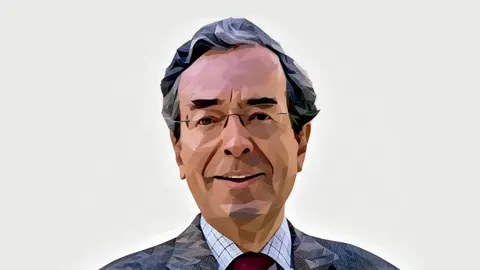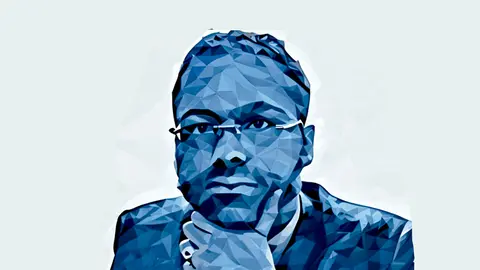When Steven Spielberg asked John Williams to compose the score for Schindler’s List, he showed him an early cut of the film. Williams stood, walked out of the screening room, and returned a few minutes later in tears.
“You need someone better than me to compose the music for this,” he said.
And Spielberg replied, “I know. But everyone better than you is dead.”
In what follows, we reflect on suffering, and on the silence that so often surrounds it. We trace its echoes through wine, through memory, and through the threshold of Easter, at whose door we now stand.
But before we begin, we invite you to settle into silence—just as Spielberg and Williams once did, seated beside their respective partners—while listening to the theme from Schindler’s List. Notice how Spielberg, in moments, closes his eyes; how at others, he turns toward the composer, who listens to his own music with eyes quietly veiled by emotion.
Let yourself be drawn into that murmur of violin—one that speaks without needing words.
Suffering is inevitable. It has accompanied humanity like a persistent echo through the centuries. As with the mythological Hydra—whose severed heads multiplied with each attempt to destroy it—suffering often grows stronger the more we struggle to eliminate it. For every wound that closes, two more seem to open, crying out for meaning in the face of finitude and absurdity.
And yet, from the dawn of civilization in the lands of Sumer and Akkad—more than six thousand years ago—to the present day, wine has endured as a silent witness to that struggle.
In recent times, the English philosopher Roger Scruton reflected on the paradoxical nature of wine: a secular symbol of transcendence. In the face of joy or despair, wine becomes an ephemeral refuge—and more than that, a mirror in which we might catch a glimpse of ourselves, and face—more lastingly—the existential concerns that emerge from the silence at the heart of being itself.
It is in this hedonistic ambiguity that wine reveals its symbolic potency. Somewhere between suffering and bliss, memory and ritual, the vine speaks. And this voice takes on a unique meaning during the Jewish festival of Passover—Pesach—whose name itself means “to leap,” and which forms the deep root of the Christian Easter.
As early as the Second Temple period, during the Passover Seder, Jews raised four cups of wine as an essential part of the liturgy. According to the Mishnah (Pesachim 10:1) and the Talmud, these cups embody the four expressions of redemption spoken by God in the Book of Exodus (Shemot 6:6-7): ‘I will bring you out—I will deliver you—I will redeem you—I will take you as My people.’
This practice, which continues to this day (cf. Jn 13:29), evokes not only liberation, but also the suffering—even that of the Egyptians—before freedom is achieved; for freedom does not burst forth without memory.
And it is in the Christian Passover that the symbolism of wine takes on a new and transcendent significance, transfiguring the blood of the Messiah into the suffering of God.
Though Judaism has traditionally envisioned a glorious and triumphant Messiah, the figure of a suffering Messiah lingers at the margins of its tradition.
In the Babylonian Talmud (Sanhedrin 98b), he appears as “the leper of the house of study,” a being who bears the pain of his people, echoing the suffering servant of Isaiah 53. Meanwhile, the Zohar places him in the “Palace of the Sick,” where his affliction becomes an offering for Israel’s redemption. This image returns each Yom Kippur in the liturgical poem Mashiach Tzidkeinu, where this sacrificial dimension of the Messiah is evoked: “wounded for our transgressions,” bearing “the yoke of our iniquities.”
But why should the Messiah triumph through suffering? Is suffering truly necessary? Is it inexorable? Or is it a fatal flaw in creation itself?
We do not know why suffering exists. What we do know is that it is a mystery we all share—one that exceeds our capacity to comprehend, whether we are believers, skeptics open to faith, or those who have turned away entirely.
The 20th-century Jewish philosopher and biblical scholar André Neher, in his masterpiece The Exile of the Word: From Biblical Silence to the Silence of Auschwitz, suggests that even in the face of absolute horror—the Shoah, the Holocaust, and other global tragedies—God continues to speak through silence. A silence buried beneath the weight of human darkness, yet not without meaning.
It is within this very silence that, throughout the Bible, a radical form of revelation is glimpsed. On Mount Horeb, the prophet Elijah, after the roar of the wind, the fire, and the earthquake, finally hears the voice of God—not in noise, but in a still, gentle murmur: Kol Demamá Daká (קוֹל דְּמָמָה דַּקָּה).
In Christianity, this silence finds its most visceral expression in the figure of the suffering Messiah, who, in the crucifixion, encounters not only death, but divine withdrawal. His cry—“Eli, Eli, lama sabachthani?” “My God, my God, why have you forsaken me?” (Psalm 22:1; Matthew 27:46; Mark 15:34)—rises into the silence of the Father’s retreat (Deus absconditus).
In the symbolism of the Passover wine, this silence takes on a new and transcendent weight: it becomes the blood of the suffering Messiah, and in him, the suffering of God himself is poured.
And if God is silent—if his face appears hidden—can we still feel his presence in the void?
For the believer, suffering can shake faith, erode certainties, and awaken unsettling questions. Is the affliction of the innocent ever just? Does human pain exceed the weight of one’s own guilt? And if God remains silent—if His face seems absent—is silence an echo of the divine, a limit-form of presence, or simply the threshold of a void without face or promise?
And what of wine?
The vine, like the mythological Hydra, meets silence not only with endurance, but with revelation. Under the blaze of the sun and in the absence of water, it does not merely persist—it transforms. Out of that silence, the vine brings forth—like the Hydra—a quiet alchemy of transmutation.
In this resilient act, a marvelous inner transmutation unfolds—a metabolic pathway that converts carotenoids into aromatic compounds known as C13-norisoprenoids, including β-ionone and β-damascenone. These molecules not only defend the vine, but give it voice. It is in this invisible process that its essence is shaped.
In a similar way, some grape varieties increase the concentration of other volatile compounds such as linalool—evoking notes of rose and citrus—and β-caryophyllene, with its subtle hint of clove. These molecules act as a defense against oxidative stress induced by extreme sun exposure.
But when the heat surpasses 40°C, in varieties like Tempranillo, compounds such as citronellol and α-terpineol—those that carry the freshness of pine—begin to vanish under the weight of drought. In their place, β-damascenone and β-ionone rise—releasing aromas of tobacco, rose, violet, and iris.
In this silent exchange, some aromas quietly retreat in the face of the drought’s severity, while others—like rose and clove—unfold with intensity, responding to the vine’s hidden suffering.
It is in this extreme environment that the vine, like a vegetal Dasein, confronts its finitude by transmuting suffering into identity. That pain is inscribed in the chemistry of the fruit, becoming a sensory memory of its resilience. In this way, the ephemeral becomes aroma, and what is lost opens into an essence—revealed in the silent whisper of other notes: clove, citrus, tobacco, violets, wood.
Yet the silence of Dasein’s suffering—understood as the human being in its mode of being—threatens to dissolve into an unbearable emptiness when faced with the problem of absolute evil and radical suffering.
If suffering unfolds in total silence—if no one sees it, no one hears it, no one bears witness—if it takes place in an absolute void… what meaning remains in resisting? This is the most brutal of scenarios: where there is no God, no Other, no hope. Only the individual and their pain echoing in the void.
And then we are left to ask: who, then, speaks to the human being in and from that silence?
For the believer—can the whisper of God still be heard in such stillness?
And if there is no god in the void, what answers might arise from the nonbeliever’s capacity to create meaning for themselves—or to allow themselves to be inhabited by the presence of the Other?
Standing thus at the threshold of existentialism or humanism, we are compelled to search not for a reason why we suffer, but for a response before suffering—just as the Austrian philosopher Viktor Frankl (1905–1997) proposed.
Suffering, after all, will always remain with us—an existential question without answer or explanation, a question that draws us to the edge of meaninglessness. And yet, perhaps the silent whisper that accompanies it might reveal something: that in the end, to greater or lesser degrees—like the vine and the wine—we ourselves are the meaning that responds to suffering. Whether we are believers, skeptics open to faith, or atheists, existentialists, nihilists.
We speak of a response in the form of a leap—a new Pesach (פֶּסַח), which literally means “to leap”: a leap toward God; toward transcendence (der letzte Gott); toward dwelling with the Other (Mitsen); or toward immanence within oneself—that being-with-oneself described by Jean-Luc Nancy (1940–2021) and Michel Henry (1922–2002).
And wine is part of that shared leap—whether toward the silent God, the Other who waits, the listening self, or the echo that binds them all.
And so, to conclude: pour yourself a glass of wine. Let yourself be enveloped by Waloyo Yamoni (“We Will Overcome the Wind”), from The Drop That Contained the Sea by composer Christopher Tin—a piece that invites us to celebration—while listening to the breeze quieted by the wind.
And in that moment before suffering, suspended between silence and revelation, the meaning of the breeze on Horeb will be heard.
And all will be well, for that first drop—the tear that fell from the composer’s eye—will have found its resting place in the glass of wine before him.
And it will be that drop that holds back the sea.
Shalom le Culechem (שָׁלוֹם לְכוּלְכֶם) – Hebrew
Shlama lekhun (ܫܠܡ ܠܟܘܠܟܢ) – Aramaic
Salam li-l-jamī‘ (سلام للجميع) – Arabic
May the peace of the Messiah in his suffering accompany you this Holy Easter, whether you are believers, agnostics, whether you are believers, agnostics, seekers—or even atheists, existentialists, or those who wrestle with meaning.
Hosanna Peña and Dr. Ricardo De Arrúe
The Perfume of Wine
References of interest
EHRMAN, B. D. "God's Problem: How the Bible Fails to Answer Our Most Important Question -- Why We Suffer". 2009. HarperOne; Reprint edition (Feb. 24 2009). ISBN-13 : 978-0061173929.
GAMBETTA, J.M. et al. Sunburn in Grapes: A Review. Front. Plant Sci. [online]. 08 January 2021. Vol. 11, Article 604691. [Accessed 6 April 2025] DOI 10.3389/fpls.2020.604691. Disponible en: https://doi.org/10.3389/fpls.2020.604691.
SAVOI, S.; et al. From grape berries to wines: drought impacts on key secondary metabolites. OENO One. [online]. 17 September 2020. Vol. 54, no. 3, p. 569–582. [Accessed 6 April 2025]. DOI 10.20870/oeno-one.2020.54.3.3093. Disponible en: https://oeno-one.eu/article/view/3093
SONG, J. et al. Influence of deficit irrigation and kaolin particle film on grape composition and volatile compounds in Merlot grape (Vitis vinifera L.). Food Chemistry. [online]. 15 September 2012. Vol. 134, Issue 2, 15 September 2012, p. 841-850. [Accessed 6 April 2025]. DOI https://doi.org/10.1016/j.foodchem.2012.02.193. Disponible en: https://www.sciencedirect.com/science/article/abs/pii/S0308814612004086
VOLGAGGIO, F. G.; CIGLIA, F. P., y HADJADJ, F. En la tempestad, Dios: Sobre el dolor, entre la biblia y la filosofía. 1ª ed. Biblioteca de Autores Cristianos. 2024. ISBN. 978-84-220-2377-7.



















